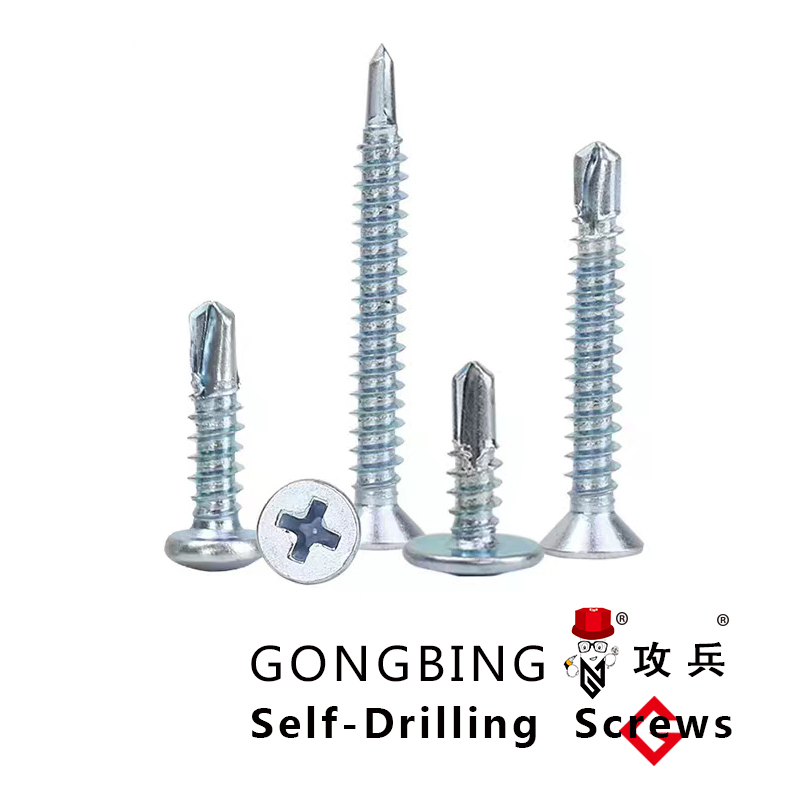Sheet Metal Expansion Anchors for Enhanced Stability and Strength in Construction Applications
Understanding Sheet Metal Expansion Anchors A Comprehensive Guide
Sheet metal expansion anchors are essential components in various construction and engineering projects. They offer a reliable method for securing materials to masonry or concrete surfaces. In this article, we'll explore what sheet metal expansion anchors are, their types, application methods, and best practices for installation.
What Are Sheet Metal Expansion Anchors?
Sheet metal expansion anchors are fasteners designed to hold objects securely against a substrate by utilizing a mechanical expansion mechanism. These anchors are typically composed of durable materials like steel, stainless steel, or zinc-plated steel to withstand environmental stresses and corrosion. They feature a design that allows them to expand when a bolt or screw is tightened, creating a strong grip within the base material.
Types of Sheet Metal Expansion Anchors
1. Sleeve Anchors Sleeve anchors consist of a metal sleeve that expands against the walls of a pre-drilled hole when the bolt is tightened. They are highly effective in a variety of substrates—from concrete to brick—making them versatile for different project needs.
2. Wedge Anchors Wedge anchors work similarly to sleeve anchors but have a wedged shape which enables them to lock securely into place. They are typically used in heavy-duty applications where a robust hold is necessary.
3. Drop-in Anchors These are installed into pre-drilled holes and then require a setting tool to expand the anchor inside the hole. They are ideal for applications where the anchor needs to stay level with the surface.
4. Concrete Screws Although technically not expansion anchors, concrete screws serve as an alternative means of securing sheet metal to concrete. They thread directly into the concrete, providing a strong hold without expansion mechanisms.
Applications of Sheet Metal Expansion Anchors
sheet metal expansion anchors

Sheet metal expansion anchors are used in a variety of applications, including but not limited to
- Building Frames They are crucial in securing sheet metal to the steel framework of buildings, ensuring stability and safety. - HVAC Systems Used to attach ductwork and other HVAC components to ceilings and walls, providing necessary support while allowing for minimal movement. - Electrical Installations Helpful in mounting electrical boxes, conduits, and fixtures to concrete or masonry surfaces effectively.
Best Practices for Installation
1. Choose the Right Anchor Size It is vital to select the appropriate size of anchor based on the thickness of the sheet metal and the load it will carry. Refer to manufacturer specifications for detailed guidelines.
2. Use the Right Tools Ensure to have the necessary tools for drilling and setting the anchors properly. Tools like rotary hammers or impact drills are often required for concrete installations.
3. Drill Correctly Pre-drill holes with the correct diameter and depth as recommended for the chosen anchor type. Using a hammer drill can help achieve clean and accurate holes in hard surfaces.
4. Follow Torque Specifications When tightening the bolt, follow the torque specifications provided by the manufacturer to prevent over-tightening or damaging the anchor.
5. Inspect Regularly Regular checks on the installed anchors can help identify any signs of wear or loosening, ensuring that they maintain their integrity over time.
Conclusion
Sheet metal expansion anchors are invaluable in various construction and engineering applications. Understanding their types, installation methods, and the best practices can significantly enhance the strength and durability of projects. By choosing the right anchor and following proper installation protocols, professionals can ensure secure and reliable applications in their work.
-
Weatherproof Plastic Expansion Anchors for OutdoorዜናJun.06,2025
-
Sustainability in the Supply Chain: Eco-Friendly TEK Screws ProductionዜናJun.06,2025
-
Load-Bearing Capacity of External Insulation FixingsዜናJun.06,2025
-
Double Head Bolts: Enhancing Efficiency in Industrial MachineryዜናJun.06,2025
-
Corrosion Resistance in Chipboard Screws: Coatings for Wholesale DurabilityዜናJun.06,2025
-
Butterfly Toggle Bolts : Enhancing Structural ResilienceዜናJun.06,2025
